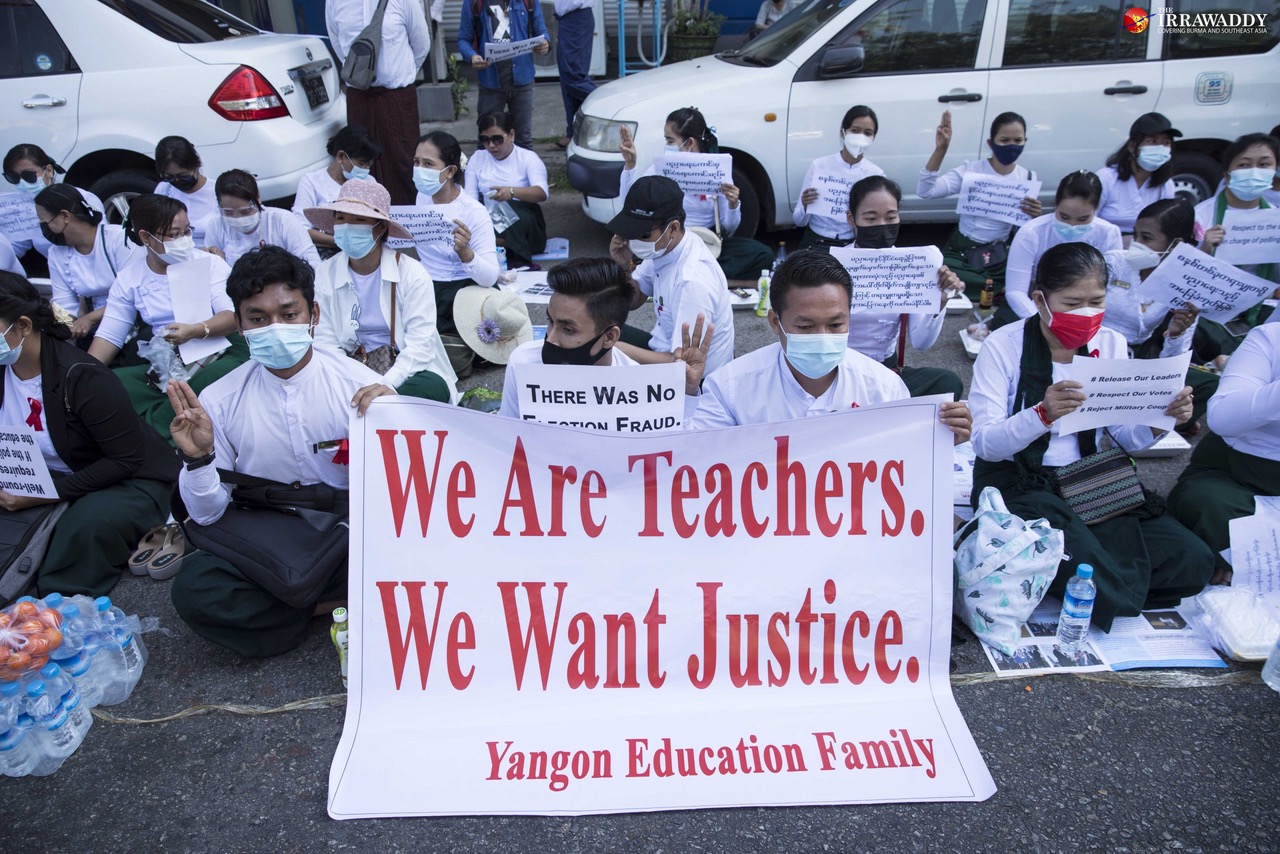Myanmar’s education system is in chaos due to the regime’s failure to fill the massive vacancies of qualified teachers who refused to work for the junta and joined the Civil Disobedience Movement (CDM) after the 2021 military coup, parents of students say.
More than 400,000 government employees from the education system joined the CDM—a peaceful protest against the coup—and refused to work in the regime’s education system in 2021. Professors, teachers, administrators and general school staff members joined the movement, causing severe staff shortages at all levels of education, from primary to university.
On October 5, World’s Teachers Day, the civilian National Unity Government said at least 130,000 teachers continue to participate in the CDM, or more 30 percent of those who joined it in 2021.
A primary school in North Dagon Township on the outskirts of Yangon is so understaffed it can no longer offer regular full-time classes for students, parents of students said.
“My daughter only has to go to school two weeks a month,” the mother of a Grade 2 student in the township said, adding: “Half of the teachers took part in the CDM. So, they don’t have enough teachers to handle all the classes.”
A primary school in Yangon’s Thaketa Township opens every weekday but only for half a day.
“Primary schools normally start at 9 a.m. and finish at 3:00 p.m., but now my kid returns home at noon. I don’t even need to prepare a lunchbox for him,” a mother of a boy who attends the school said.
Schools under the regime’s Ministry of Education in Yangon and other big cities are struggling with teacher shortages and a lack of qualified teachers, teachers who joined the CDM said.

Millions of students in Myanmar had drifted from classrooms and schools when the Covid-19 pandemic hit the country in March 2020. The military coup in 2021 added fuel to the fire as nearly 10 million students boycotted the regime’s education system.
Many parents in Yangon, Mandalay and other big cities shifted their children to private schools while students in resistance strongholds continued studying in community schools set up by CDM teachers and volunteers under guidelines set by the National Unity Government.
Two years after the military coup, many children from underprivileged families in urban areas, as well as those whose parents are civil servants in the regime’s ministries, returned to the regime’s classrooms because their parents could not afford private schools.
Online education supported by NUG’s Ministry of Education is inaccessible to most students due to safety reasons and the regime’s crackdown on CDM teachers.
Power outrage, lack of internet access and mobile devices also hinder access to online education.
“I think the number of students who returned to the regime’s schools has increased gradually, particularly in basic education, as parents could not wait any longer … Our children need to complete basic education to get a job,” a mother of a Grade 11 student said.
Non-CDM teachers who remain working in basic education under the regime’s education system are grappling with heavy workloads due to teacher shortages, relatives and sources close to non-CDM teachers said.
“My sister is in charge of seven classes because none of her colleagues can teach science in her high school,” a relative of a non-CDM teacher from Yangon said.
Parents said the quality of education in regime schools has been deteriorating due to the lack of qualified teachers.
“Some teachers even give out the exam questions and answers for monthly exams.
So, I decided to transfer my son to a private school to get a decent education as I don’t trust in the regime’s education system,” the mother of a Grade 11 student said.
Impoverished families say they lack the luxury of complaining because they have no options.
“As a parent, I wish I could get the best education for my children. At the moment, we have little or no choice. It’s like a ‘do or die’ situation. So, how can I complain about it?” a mother of a Grade 2 student in Yangon said in exasperation.

















